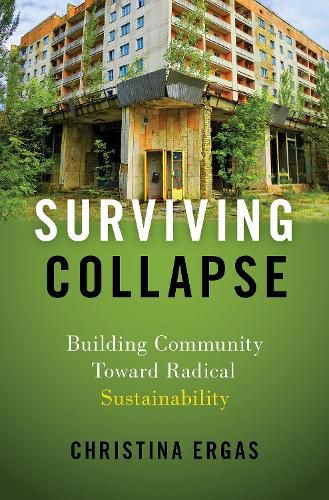Readings Newsletter
Become a Readings Member to make your shopping experience even easier.
Sign in or sign up for free!
You’re not far away from qualifying for FREE standard shipping within Australia
You’ve qualified for FREE standard shipping within Australia
The cart is loading…






As major environmental crises loom, Christina Ergas makes the argument in Surviving Collapse that one possible way forward is a radical sustainable development that turns the focus from monetary gain to social and ecological regeneration and transformation. Employing qualitative and cross-national comparative methods, Ergas examines two alternative, community-scale, socioecological models of development: the first is a grassroots urban ecovillage in the Pacific Northwest, United States, while the second is a government-subsidized, but cooperatively run, urban farm in Havana, Cuba. While neither are panaceas, they prioritize social and ecological efficiency and subsume economic rationality towards those ends. Featuring cases that not only allow us to synthesize their strengths but evaluate their weaknesses, Surviving Collapse reveals a multitude of varied paths toward reaching radical urban sustainability and empowers us all to imagine, and possibly build, more resilient futures.
$9.00 standard shipping within Australia
FREE standard shipping within Australia for orders over $100.00
Express & International shipping calculated at checkout
As major environmental crises loom, Christina Ergas makes the argument in Surviving Collapse that one possible way forward is a radical sustainable development that turns the focus from monetary gain to social and ecological regeneration and transformation. Employing qualitative and cross-national comparative methods, Ergas examines two alternative, community-scale, socioecological models of development: the first is a grassroots urban ecovillage in the Pacific Northwest, United States, while the second is a government-subsidized, but cooperatively run, urban farm in Havana, Cuba. While neither are panaceas, they prioritize social and ecological efficiency and subsume economic rationality towards those ends. Featuring cases that not only allow us to synthesize their strengths but evaluate their weaknesses, Surviving Collapse reveals a multitude of varied paths toward reaching radical urban sustainability and empowers us all to imagine, and possibly build, more resilient futures.